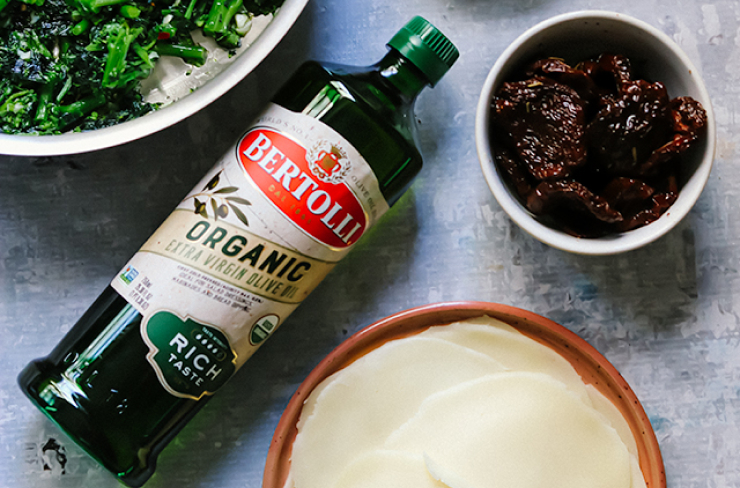
Organic Olive Oil Means Only Organic Olives
The term “organic” is a buzzword often heard in the food industry. But what exactly does it mean when you pick up a bottle of olive oil with the word “organic” stamped on the label?
Strict Farming Regulations
For Bertolli, delivering on the company’s promise of high-quality organic olive oil means abiding by strictly regulated practices that guarantee there’s been no use of pesticides, chemicals, synthetic fertilizers or artificial compounds. This begins with the farm. Bertolli visits hundreds of olive farmers around the world and samples thousands of oils before creating a perfect signature blend. When partnering with organic olive oil suppliers, Bertolli works with the orchards and production process to ensure that regulations for organic farms are being followed.
“We select our organic olive oils from several countries, and mainly from orchards in Italy, Spain, Greece and Portugal,” explains Anna Cane, Corporate Quality Coordinator at Bertolli. For a farm to begin cultivating an organic olive orchard, it must first undergo an analysis of the soil and trees to guarantee there are no possible contaminants. The area also has to demonstrate that it has been free of any synthetic or chemical treatments for three years. Once all of these factors have been confirmed, the farmer may start organic crop production. It’s a rigorous process governed by strict regulations that must be validated by external, independent parties.
Without chemical treatments, organic farms turn to nature—namely insects and birds—to protect the trees from disease. For the soil, farmers only use natural fertilizers. “The result may mean less production,” says Cane, “but in the end you have a more natural product.”
An Organic Seal of Approval
If you prefer to buy organic olive oil, look for the appropriate seal on the bottle. In the U.S., Bertolli organic olive oil includes a “USDA Organic” seal. This confirms that the olive oil was created under a strict set of rules and is in fact organic quality.
Good to note: There is no single international governing body for organic products. The regulations may differ from country to country, but the basic principles are consistent. Since 2012, the European Union and U.S. have recognized each other’s organic production rules and control systems as equivalent.
Positive Local Impact
“Generally, organic olive oil is more costly to produce than conventional oil because of all the work that’s behind it,” says Cane. But the benefits of organic are far-reaching. “Organic orchards respect nature, sustainability and balance, and in that sense promote the development and revitalization of rural economies.” The more profitable production of organic olive oil, compared to non-organic, is able to support more workers and the wider community.
“In the end, all of our olive oils are really, really good,” explains Cane. “The difference with our organic olive oil is that it is nurtured with extra care. We consider the environment, the sustainability of the farming practices and the balance of nature in order to get fruit with the right quality.”

